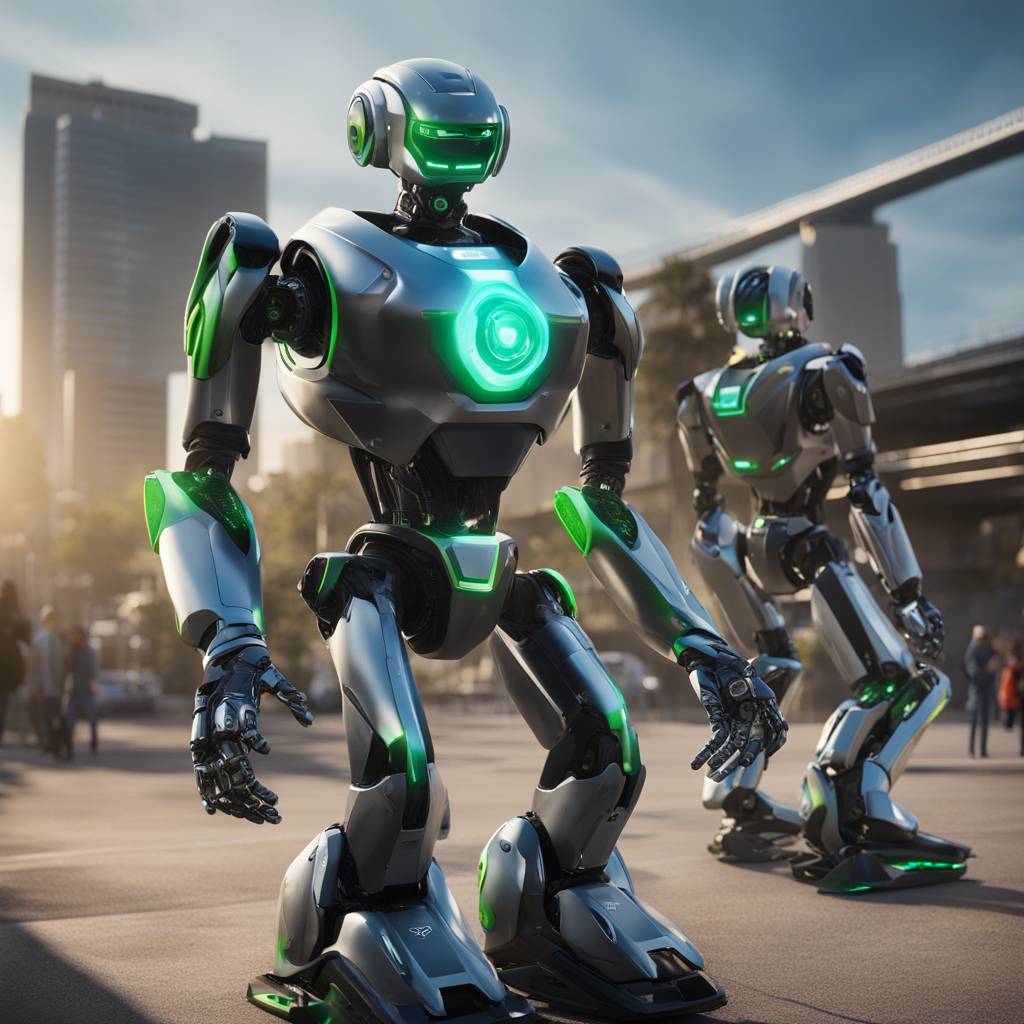Nvidia is shifting its focus from hardware production to artificial intelligence (AI) development with the introduction of its new robot project, Project GR00T, which aims to enhance robotic tasks through generative AI. This initiative marks a significant step into the AI field and highlights the importance of developing more generalizable robots that can quickly acquire new skills in various environments. The foundation models utilized in Project GR00T will enable robots to better understand complex environments and execute a wide range of tasks both in simulations and the real world.
The introduction of the Jetson Thor computer system by Nvidia further emphasizes the company’s commitment to developing advanced AI capabilities for robots. With the surge in AI interest and demand, Nvidia experienced a 206% increase in revenue in the previous year, solidifying its position as a key player in the industry. Countries like the United Kingdom are investing heavily in semiconductor chips to support research and development efforts in AI. Nvidia’s pivot to AI development began in late 2023 and has gained momentum, particularly with the success of the company’s AI-focused projects, such as robots capable of performing multiple tasks in various environments.
Nvidia’s expansion into AI development comes after years of success in chip manufacturing, with the company now at the forefront of innovative AI technologies. The collaboration between OpenAI and robotics company Figure resulted in the development of the Figure 01 robot, which garnered attention for its realistic responses and movements. The robot’s ability to differentiate between organic and inorganic matter and explain its decisions indicates significant progress in AI-enabled robotics. The partnership between Nvidia and Figure underscores the growing interest in humanoid robots that can perform tasks previously done by humans, leading to potential mass adoption in the future.
While concerns persist about the reliability of AI models running robots, Nvidia remains focused on advancing the capabilities of its robots through Project GR00T and other AI initiatives. The company’s investments in advanced AI capabilities for mobile and industrial robots demonstrate its commitment to addressing mission-specific problems while making robots more adaptable for various industries and applications. By leveraging generative AI models, Nvidia aims to enhance the productivity and performance of robotics developers and pave the way for the widespread adoption of intelligent robots in various domains.
The growing interest in AI and robotics has positioned Nvidia as a leader in developing cutting-edge technologies with real-world applications. The company’s revenue growth and partnerships with industry leaders reflect the increasing demand for advanced AI solutions in various sectors. As Nvidia continues to innovate and showcase its AI-focused projects, including robots capable of performing complex tasks, it is poised to play a significant role in shaping the future of AI-enabled technologies. By investing in projects like Project GR00T and collaborating with leading companies in the field, Nvidia is driving the advancement of AI technologies that have the potential to revolutionize industries and enhance human-robot interactions.













